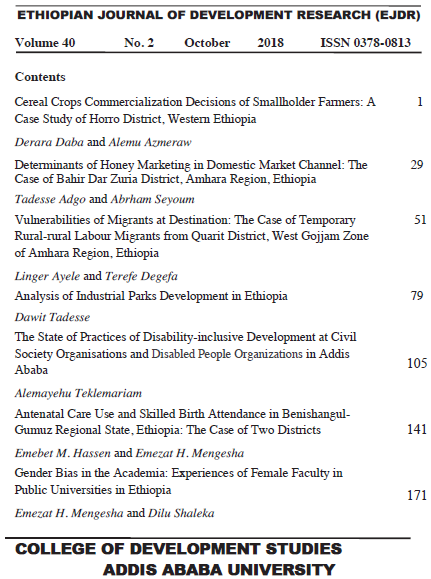Gender Bias in the Academia: Experiences of Female Faculty in Public Universities in Ethiopia
Keywords:
gender bias, academia, experiences of female faculty, public universities, EthiopiaAbstract
The education sector policy of Ethiopia, recognizing the very low proportion of females in faculty positions in the academia (12% in 2015), advocates for increasing access for females to join faculty positions in Higher Educational
institutions (HEIs). However, there is little analysis and documentation on the opportunities and challenges that female faculty face once they join the academia and less is known about the dimensions of gender equality concerns of female faculty members in HEIs in the country. With the objective of analyzing the experiences of female faculty in the academia, thereby exposing their challenges and experiences in selected public universities of Ethiopia, the paper employs qualitative methods to understand how female faculty construct meanings out of their experiences of being a female faculty in Ethiopia’s HEIs. A total of sixteen in-depth interviews were held with female faculty from selected six universities complemented with one focus group discussion. The findings reveal that the challenges of female faculties emanate from complex gender relations that shape societal views and expectations about the proper role and place of women and men in society. Such widely held societal views and practices are, by and large, woven into the fabric of HEIs pretty much unaltered and unmodified. Governing polices in the education sector, particularly on higher education, the institutional culture as well as practices and even personal dispositions of people in leadership deeply reflect this skewed nature of gender relations which often disadvantage women. While the policy framework advocates increasing access to females, there is an urgent need to focus not only on access but also on creating conditions for female faculty to thrive once within the system of HEIs.

